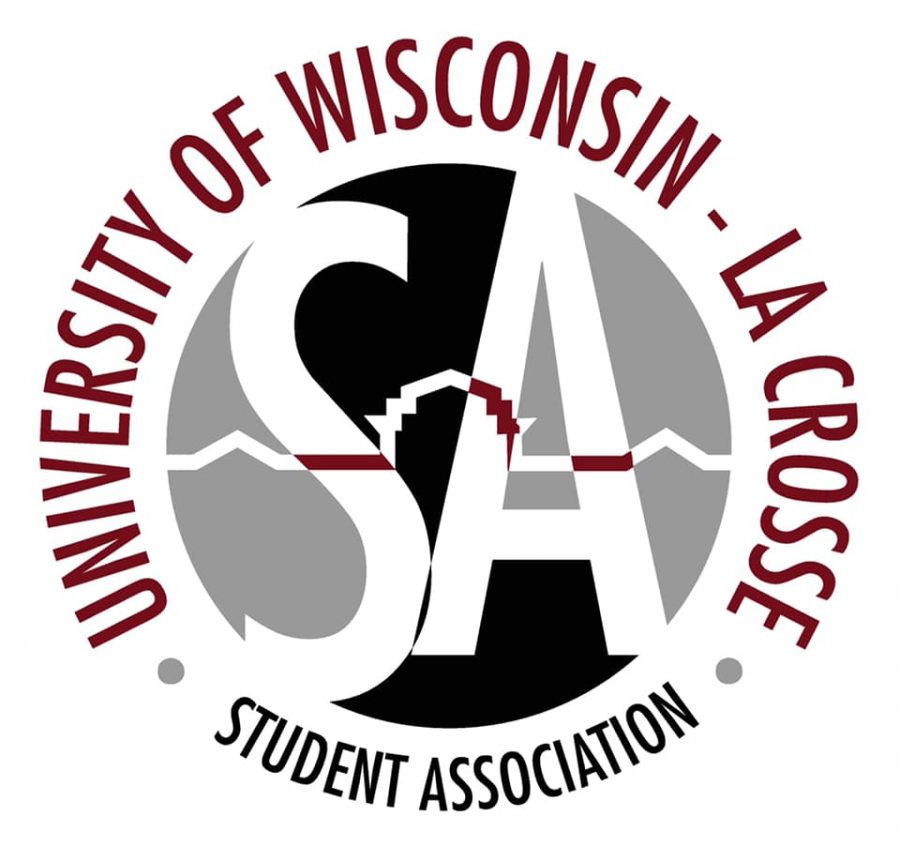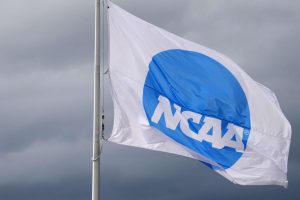Student Senate welcomes Dr. Timothy Dale and Representative Jill Billings to weekly meeting
October 31, 2019
The Student Association met on October 30, 2019 to listen to two guest speakers: Political Science professor and UWL’s first year seminar director Timothy Dale, and Rep. Jill Billings of the 95th district of La Crosse. They both answered questions from the senate and discussed how these programs help UWL’s credibility.
Dale is currently in the process of piloting a first-year seminar with 25 sections of first year students. A mandatory first-year seminar will be introduced next fall, where students who are below 30 credits will be obligated to take a first-year seminar. Most four-year institutions have first-year seminars, and UWL plans to follow suit with a format that aims to eliminate nine elective credits that aren’t paired with any general education courses. Instead, the credits would be replaced with three credits earned upon completion of the seminar, which would drop general education credits from 48 to 42.
Instructors must participate in a yearlong certification process. This year’s training process has certified over 100 faculty members, surpassing last year’s number of 30. “We aren’t just letting anyone teach it,” Dale said.
According to Dale, “We are a little bit behind on the first-year seminar trend, but what’s nice is that we were able to look at multiple models from across the country and see what does and doesn’t work.” With these new methods being implemented, many other universities who are looking to adapt their seminars are taking notice, and Dale says that “there are universities looking at how we are doing our first-year seminar, saying ‘ours isn’t working that well, but we think yours will.”
The effectiveness of a first-year seminar is not as much academic as it is personal, providing an opportunity for students to grow a relationship with faculty, thus improving the institution’s retention rate.
UWL has been known for undergraduate research, and students often find they are well prepared after four years’ worth of work using problem-based learning. However, Dale would like to see this happen sooner. “Our surveys suggest that these experiences don’t happen until later on in a college career. UWL being behind with what we call High-Impact Practices for underclassmen, so a first-year seminar is a way to bring a ‘cool’ learning experience that can make an impact.”
Dale wants your first-year classes to be interesting, as his goal for the first-year seminar is for it to be “one of, if not, the best class you take your first-year.” Data that has been compiled from universities around the country suggest that having a seminar interesting enough to attract first year students leads to a higher retention rate, as graduation time tables have shown improvement along with higher GPAs when students are given a sort of “introduction” to what collegiate academic life should look like.
During the training processes, professors are obligated to create a list of subjects that interest them enough to make a seminar from it. While choosing subjects that are outside of the norm or pertaining to a trend that many college students can relate to, Dale wants to see an idea that is not only broad but also extends outside of the classroom. Some topics that will be offered for next fall include, “Living on the Edge: Organisms in Extreme Environments,” “Dragonflies and dog walkers: coexisting in urban wetlands,” and “Fake News: Making sense of media and politics.”
“What I really wanted to do with my time here is to have a list of faculty names for you to match seminar topics to,” Dale joked. First-year seminars should be produced by many campus programs, in order to ensure a proper mixture of topics for the many areas of interest that incoming UWL first year students bring to campus.
First-year seminars will meet for three hours each week, two being in person and one online. The online experience is to be as general as possible for all students, no matter the area of study, in what Dale calls a “common experience.” This common experience is to be ran under seven different types of modules: Connections, Belongings, Learning, General Education, Planning, Money, and a Conclusion. Each module will have two areas of interests involving campus life and learning development.
The learning outcomes which Dale hopes first year students take away from this experience include the ability to examine enduring questions and how they may be studied, employ strategies that contribute to success in college, participate effectively in class discussions and collaborative projects and explain the purposes and value of a liberal arts education.
Rep. Jill Billings attended the meeting to discuss her role with the community and her stance on what’s been unfolding around the state. She has held her position in office for eight years, and enjoys having UWL in her district, as she enjoys be living in a city that has a university and sees great value in its influence on the community. Her connections to the university are also personal, as her niece also attends UWL.
She discussed the committees she runs for her district, including the building commission which oversees all properties owned by the state, including campgrounds and other building projects around campus. She is the chair for the Higher Education Commission, which is currently resolving eight years of differed projects, and she is happy with Governor Evers’ attempts towards constructing a new budget for this. As a member of the building commission, her greatest disappointment was the denial of the second phase of construction to the Prairie Springs Science Center, but she congratulated students’ representatives on their engagement and aggressive advocacy.
She operates the committee that supervises the colleges in the area, where she trying to establish a bill for protecting veteran students against costly tuition bills, which she believes will end up giving these veterans some relief. She influenced a minority student loan program, where school’s minorities can attend under a more balanced tuition cost if they are on a teaching track.
She has also worked in tourism for the state, which La Crosse sits in 9th place out of 27 counties in the most toured areas in the state.
She then spoke on what government accountability means to her, which spans from advocacy against substance abuse to flavored vaping. She is on the council of opioid misuse, which aims to advocate for awareness over opioid abuse in the state of Wisconsin, which sat at 16th overall in 2017 with opioid-involved overdoses/ death.
Billings said that, considering how the senate has only talked about meeting a hand full of times, how not much has been passed through this “narrow Avenue”, as she calls the senate. “What’s interesting about this year is Governor Evers is involved with a republican controlled legislature” said Billings. Evers is pushing for the legislature to work together, as he calls for bills from both parties to be discussed. “We have to work together and compromise” Billings said.
Billings has also been involved with flavored vaping, which is an area of interest for many students at UWL. Billings is currently looking for a ban on the products, and a constraint on who can buy these products. “Anyone under 21 cannot smoke or vape,” Billings said. Her issue with the products is the tobacco companies that are looking to join this rhetoric, as they want to be the “heroes,” as Billings puts it, in saying you can only participate if you’re over 21. The fact that tobacco and nicotine companies advertise to children under the age of twelve bothers Billings and she is trying to stop it as quickly as possible.
She also supports a safe harbor bill, which prevents children under 18 who are forced into prostitution from being arrested. Billings stressed the overwhelming forced and coercion that goes into human sex trafficking, where most children involved in the industry have suffered a great deal of abuse and how they should be treated more as victims than criminals.
Billings is also working with area 4th graders on designating the Wisconsin state amphibian. She calls this experience a great honor, as she is practicing proper civic engagement in order to influence the next politicians. The DNR says Wisconsin should have a state amphibian, which has helped Jill talk to young children on how a bill becomes a law. She says that even if this bill doesn’t pass, the amount of involvement the children have already under their belt will allow them to experience a certain sense of “reality.”
During the discussion portion of the senate meeting, the Student Association discussed a possible 24-hour computer lab service to be implemented for UWL. Many senators supported this, but some speculated that this may end up becoming an external problem for UWL, as there could be issues brought upon campus such as damage to property, trespassing, and theft. Senators asked if library hours could be extended, but having already done so this semester, it may be difficult to implemented.






